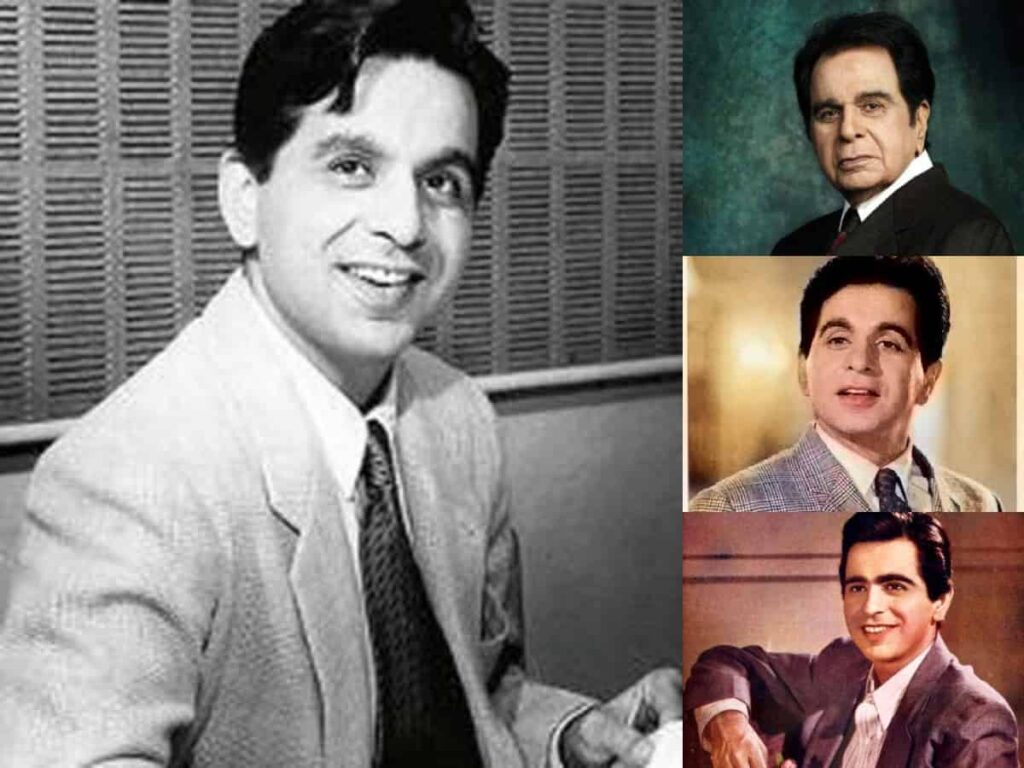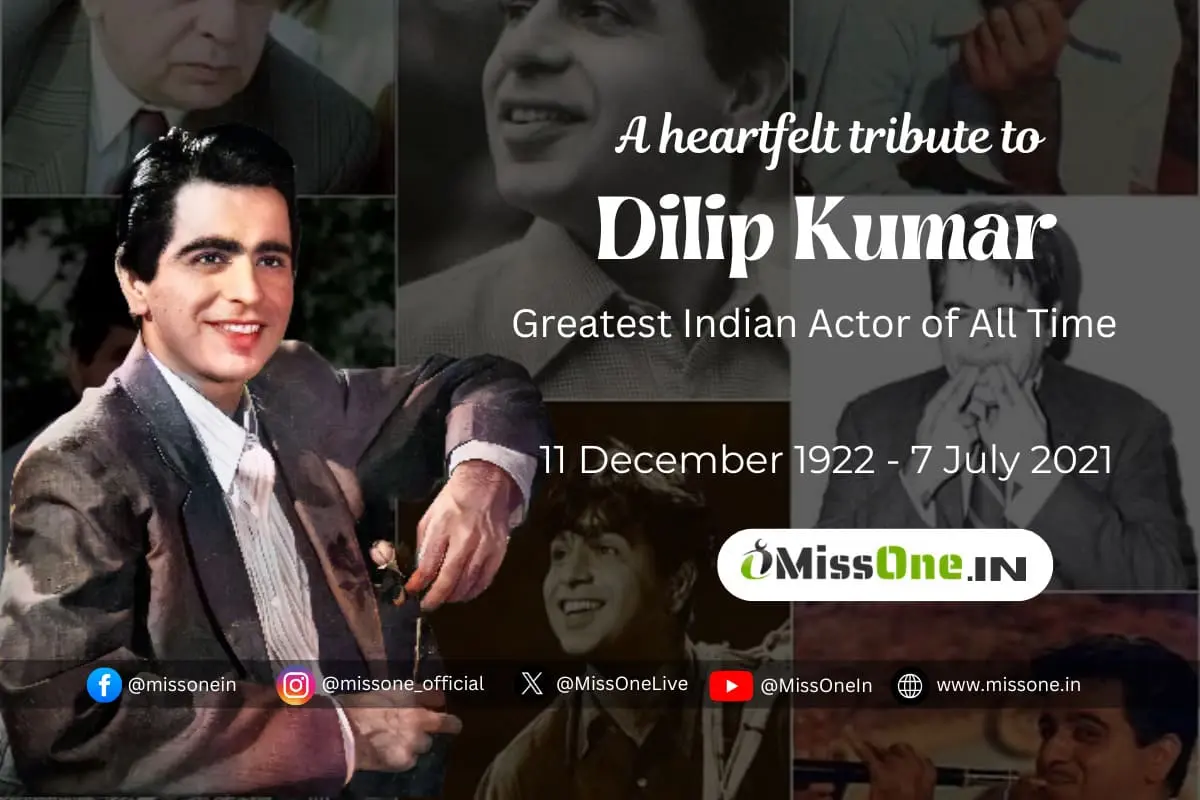On this solemn day, we pause to offer a heartfelt tribute to Dilip Kumar on his death anniversary, remembering a man whose name is etched in the annals of Indian cinema. Born as Muhammad Yusuf Khan, Dilip Kumar was not just an actor but an institution, a pioneer who redefined acting with his unmatched depth and authenticity. Known as the “Tragedy King,” his performances touched millions, weaving stories of love, loss, and resilience that still resonate today. This blog is a journey through his remarkable life his childhood in Peshawar, his close-knit family, his illustrious film career, and the numerous accolades that crowned his legacy. Join us as we honor the man who became a beacon of inspiration for generations.
Early Life: A Tribute to Dilip Kumar’s Roots
Dilip Kumar’s story began on December 11, 1922, in the bustling Qissa Khawani Bazaar of Peshawar, then part of British India (now Pakistan). Born into a Pashtun Awan family, Muhammad Yusuf Khan was one of twelve children of Lala Ghulam Sarwar Ali Khan, a fruit merchant, and Ayesha Begum. Growing up in a vibrant, multi-cultural neighborhood, young Yusuf shared a deep bond with his childhood friend Raj Kapoor, who would later become a cinematic legend himself. Their friendship, rooted in the streets of Peshawar, was a glimpse into the simplicity of Dilip Kumar’s early years.
Life in Peshawar was modest yet filled with warmth. Yusuf’s father owned orchards in Deolali, Maharashtra, where the family often spent time. Yusuf was educated at the prestigious Barnes School in Deolali, excelling in academics and sports, particularly football. His command of English, Urdu, and Pashto reflected his intellectual curiosity, a trait that would later shine in his performances. However, tensions with his father over career choices led a teenage Yusuf to leave home for Pune in 1940. There, he set up a dry fruit shop and worked in a British army canteen, showcasing his resilience and independence. It was during this time that fate intervened, leading him to the world of cinema.
This tribute to Dilip Kumar would be incomplete without acknowledging how his humble beginnings shaped his grounded personality. Despite his later stardom, he remained connected to his roots, often reminiscing about his grandmother and the carefree days of kite-flying with family. His early struggles instilled a sense of empathy, which he channeled into his unforgettable roles.
Family Life: The Heart of Dilip Kumar’s World
Family was the cornerstone of Dilip Kumar’s life. His large family included six sisters Fauzia, Sakina, Taj, Farida, Saeeda, and Akhtar and five brothers Nasir, Aslam, Ehsan, Noor Mohammed, and Ayub Sarwar. His brother Nasir Khan also ventured into acting, appearing alongside Dilip in films like Gunga Jumna (1961), though his career was less successful. Dilip, as the elder sibling, often took on a paternal role, supporting his younger siblings and their families, who regarded him as a grandfather figure to their children.
Dilip Kumar’s personal life, though private, was marked by profound relationships. His romance with actress Madhubala, sparked during the filming of Tarana (1951), was a love story that captivated the nation. Their seven-year relationship, however, ended amidst the Naya Daur (1957) court case, where Dilip testified against Madhubala’s father, leading to a heartbreaking rift. Despite the pain, Dilip Kumar maintained dignity, rarely speaking publicly about the episode.
In 1966, at the age of 44, Dilip Kumar married actress Saira Banu, then 22, in a union that defied skeptics and became one of Bollywood’s most enduring love stories. Saira, a lifelong admirer of Dilip, brought joy and stability to his life. Their bond was evident in Saira’s heartfelt tributes, like the one on his 102nd birth anniversary in 2024, where she recalled his playful, spontaneous side. The couple had no children but shared a deep connection, living together in Mumbai’s Bandra suburb until Dilip’s passing on July 7, 2021. Saira’s devotion continues to keep his legacy alive, making this tribute to Dilip Kumar a reflection of their timeless love.

Filmy Career: A Cinematic Tribute to Dilip Kumar
Dilip Kumar’s journey into cinema was serendipitous. In 1944, while working at a military canteen in Pune, he was spotted by Devika Rani, the co-founder of Bombay Talkies. Impressed by his poise and command of English, she offered him a role in Jwar Bhata (1944), suggesting the screen name “Dilip Kumar.” Though the film flopped, it marked the debut of a legend. His breakthrough came with Jugnu (1947), opposite Noor Jehan, followed by Shaheed (1948) and Mela (1948), which showcased his emotive depth.
The 1950s cemented Dilip Kumar’s status as the “Tragedy King.” Films like Andaz (1949), a love triangle with Raj Kapoor and Nargis, Deedar (1951), Daag (1952), and Devdas (1955) portrayed him as a brooding, ill-fated lover, earning him critical acclaim and mass adoration. His method acting, inspired by naturalism, was revolutionary, influencing actors worldwide. However, the intensity of tragic roles took a toll on his mental health, prompting a London psychiatrist to advise lighter roles. Dilip transitioned effortlessly, delivering swashbuckling hits like Aan (1952), Azaad (1955), and Kohinoor (1960).
The pinnacle of his career was Mughal-e-Azam (1960), where he played Prince Salim with unparalleled grandeur. The film, a cultural milestone, broke box-office records and remains a classic. Gunga Jumna (1961), which he also produced, showcased his versatility as a dacoit, while Ram Aur Shyam (1967) highlighted his comedic flair in a dual role. After a five-year hiatus from 1976 to 1981, Dilip returned with Kranti (1981), followed by powerful performances in Shakti (1982), Mashaal (1984), Karma (1986), and Saudagar (1991). His final film, Qila (1998), saw him in a dual role, marking the end of a 54-year career spanning 57 films.
This tribute to Dilip Kumar celebrates his ability to transcend genres, from tragedy to comedy, historical epics to social dramas. His films, many re-released in colorized versions like Mughal-e-Azam (2004) and Naya Daur (2007), continue to captivate audiences, proving his timeless appeal.
Awards and Honors: Recognizing Dilip Kumar’s Legacy
Dilip Kumar’s contributions to cinema and society earned him a plethora of accolades. He holds the record for the most Filmfare Best Actor Awards, winning eight times for Daag (1952), Azaad (1955), Devdas (1955), Naya Daur (1957), Kohinoor (1960), Leader (1964), Ram Aur Shyam (1967), and Shakti (1982), a record later equaled by Shah Rukh Khan. In 1994, he received the Filmfare Lifetime Achievement Award, followed by the Dadasaheb Phalke Award, India’s highest cinematic honor, in 1995.
The Government of India bestowed the Padma Bhushan (1991) and Padma Vibhushan (2015), the country’s third and second-highest civilian awards, recognizing his cultural impact. In 1998, Pakistan honored him with the Nishan-e-Imtiaz, its highest civilian award, sparking controversy in India. Supported by then-Prime Minister Atal Bihari Vajpayee, Dilip retained the award, viewing it as a gesture of peace. His Peshawar home was declared a national heritage monument in 2014, a testament to his cross-border legacy.
Beyond awards, Dilip Kumar’s influence was acknowledged by peers and fans. In 2011, a Rediff poll voted him the “Greatest Indian Actor of All Time.” His Guinness World Record for the most awards among Indian actors underscores his unparalleled stature. This tribute to Dilip Kumar honors not just his trophies but the love and respect he earned worldwide.
Social and Political Contributions: A Broader Tribute to Dilip Kumar
Dilip Kumar’s legacy extends beyond cinema. As a member of the Rajya Sabha (2000–2006), nominated by the Indian National Congress, he represented Maharashtra with dedication, using his MPLADS funds to enhance Mumbai’s Bandstand Promenade and Bandra Fort gardens. His social work included relief efforts during the 1993 Maharashtra riots and conceptualizing Jogger’s Park in Bandra.
A music enthusiast, Dilip played the sitar and sang a duet, “Lagi Nahi Chute,” with Lata Mangeshkar for Musafir (1957). His efforts to foster India-Pakistan harmony, including raising funds for Pakistan’s Shaukat Khanum Hospital, reflected his vision of unity. Despite controversies, like accusations of being an Indian agent, he remained steadfast, earning admiration for his integrity.
Legacy: The Eternal Tribute to Dilip Kumar
Dilip Kumar passed away on July 7, 2021, at 98, after a prolonged illness, leaving a void in Indian cinema. Tributes poured in from Prime Minister Narendra Modi, actors Amitabh Bachchan, Shah Rukh Khan, and global fans, reflecting his universal appeal. Saira Banu’s poignant posts, like her 2024 Diwali tribute, keep his memory alive, sharing anecdotes of his generosity and simplicity.
Dilip Kumar’s films remain textbooks for actors, his method acting a benchmark. His ability to portray complex emotions be it the anguish of Devdas, the rebellion of Mughal-e-Azam, or the camaraderie of Naya Daur set a standard unmatched. His influence on actors like Amitabh Bachchan, who called him an “institution,” and Shah Rukh Khan, who emulated his intensity, is profound.
This tribute to Dilip Kumar is a celebration of a man who lived with dignity, loved deeply, and created art that transcends time. As we mark his death anniversary, let us rewatch his classics, share his stories, and ensure his legacy endures. Dilip Kumar, the Kohinoor of Indian cinema, will forever shine in our hearts.

